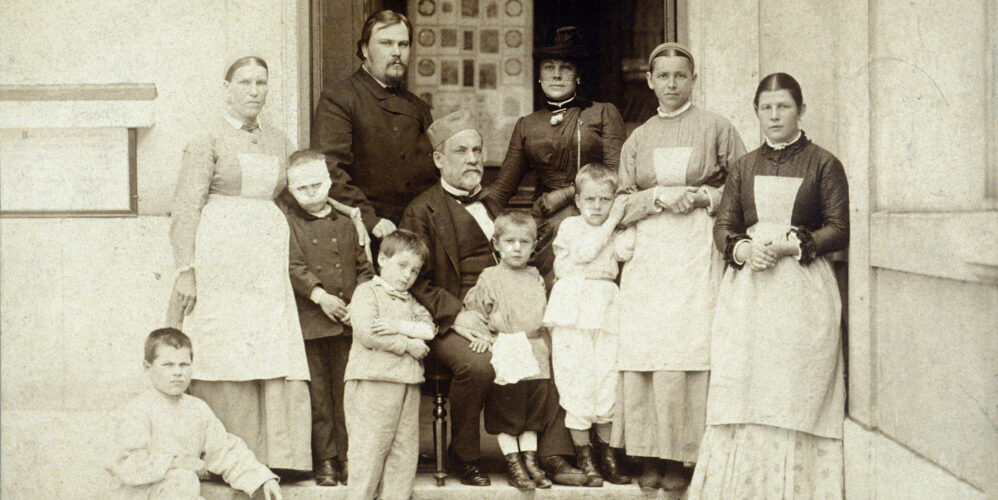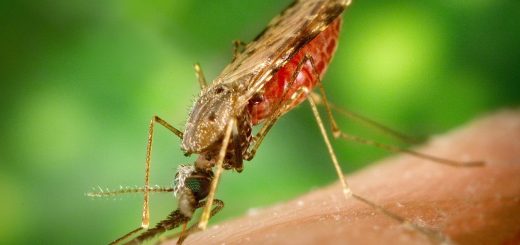Animosity as Motivation – Lessons from the Rivalry Between Pasteur and Koch

Dear reader, I ask you to bear with me as I glance on a troubling time from our very recent history. I invite you now to release a sigh of exasperation as I reveal this introduction concerns the COVID-19 pandemic. Many of us will recall with a healthy degree of distaste the COVID-19 lockdown. Though posing a great burden on our lives, this public health-oriented response and the introduction of vaccines curbed the spread of the virus responsible for disease and allowed us to emerge bleary-eyed into the world, anxious to enter our nearest Greggs and smile as we feared no longer the spread of contagion through our coveted pork pastries.
Many will take for granted our understanding of COVID-19 being caused by a coronavirus, just as the common cold is caused by a rhinovirus or influenza by its own eponymous virus. However, just over 100 years ago during the 19th Century, doctors believed tuberculosis was either inherited or a form of cancer 1 and that infectious diarrhoea was caused by pungent smells. 2 Thanks to the efforts of two men these beliefs changed, and it became apparent that illness was caused by microscopic germs (microbes), kickstarting the field of study called microbiology. Considered now as the fathers of microbiology, the Frenchman Louis Pasteur and the German Robert Koch revolutionised diagnosis, treatment and even prevention of disease and changed the world.
Students of microbiology and medicine are doubtless inspired by their valiant efforts, though in this case the adage “Never meet your heroes” rings true even if those heroes are long since dead. What I will now illustrate to you is how the world-changing research conducted by these men was underpinned by a venomous and unrelenting rivalry that, despite motivating both scientists to strive for greater achievements, ultimately threatened their scientific integrity, personal relationships and even the lives of those they sought to save.
But first, let’s set the scene.
Europe at War
As the conclusion of the 19th Century drew near, war struck Europe. Emperor Napoleon III of France, seeking a fraction of the glory so readily attributed to his namesake, declared war on the newly formed North German Confederation, marking the beginning of the Franco-Prussian War of 1870. The sentiment for conflict was festering for decades, spurred by a shifting power balance in continental Europe following the monumental Prussian victory over Austria, directly threatening French superiority established almost 100 years prior by Napoleon I. 3 The outcome was a swift and humiliating defeat for the numerically superior French (the war spanning no more than seven months), plagued by logistical shortcomings, communication failures and an outdated command model. 4 With the French military routed, Paris bombarded, the emperor exiled and the territories of Alsace and Lorraine ceded to the Germans, the Second French empire collapsed and was formally dissolved by September 1870. To further rub salt in the wound, the formation of the German Empire was proclaimed in the palace of Versailles, the historic seat of French royal authority. 5
Pasteur and Koch were men grown by the time of the war, being aged 47 and 26, respectively. Both were staunch patriots and had personal stakes in the war, Pasteur’s only son being a soldier 6 and Koch volunteering as an army surgeon on account of his background in medicine. 7 The flames of war clung to these two healers, igniting a fiery ambition to make monumental advances in infectious disease research for the betterment of humanity or, perhaps cynically, to prove their country’s superiority over the other.
Early Work
A decade following the armistice resolving the Franco-Prussian War, both Pasteur and Koch were accomplished microbiologists. Pasteur had definitively disproved spontaneous generation (the theory that life can arise spontaneously from inorganic matter) 8 9, and Koch developed sterile culture techniques on solid agar to better distinguish individual microorganisms of interest from vast mixtures of bacterial cells. 10 Both men made great contributions to dispelling the misapprehension that disease is caused by foul odours, revealing that microscopic organisms are instead responsible.
Each shared a common interest in anthrax, the disease that plagued rural France and Germany, annihilating herds of cattle and sheep alike and compromising both nations’ rural productivity.
Koch had spent the years 1873-1876 observing infected sheep blood under his microscope and noted small rod-shaped cells. He named the bacteria Bacillus anthracis and went on to discover its ability to produce spores 11, explaining how “cursed fields” could kill livestock years after any disease was present. Building on this discovery, Pasteur conducted a successful trial of his anthrax vaccine in Spring 1881 12, preserving the lives of 70 infected sheep.
First Blood
Come Summer 1881, in recognition of their contributions to industry and public health, both were invited to the Seventh International Medical Congress in London where they met for the first time.
Their meeting was arranged by Joseph Lister, the British surgeon who, inspired by Pasteur’s work on spontaneous generation, introduced the concept of aseptic technique to surgical practices in Britain. 13 Thanks to Lister, you’d be hard-pressed to find any iPhones in an operating theatre.
Following the presentation of his anthrax vaccination findings, Pasteur attended Koch’s demonstration on sterile cell culture. Pasteur complimented him, remarking “C’est un grand progrès, Monsieur” (“It’s a big step forward, sir”). 14
Despite this, Koch held bitterness for Pasteur’s unwillingness to formally acknowledge his seminal work on anthrax, mentioning him only in a footnote of one of his publications. 15 As a result, he and his colleagues proceeded to draw first blood, critiquing Pasteur publicly by labelling his findings erroneous and inconsequential. 16
Open Hostility
At the fourth International Congress of Hygiene and Demography in Geneva in September 1882, the pair would clash publicly.
Earlier that year, Koch made the groundbreaking discovery of Mycobacterium tuberculosis 17, the bacterium responsible for tuberculosis, which was then the single biggest infectious cause of death and today is second only to COVID-19 in mortality. 18
Anticipating praise and recognition, Koch was unpleasantly surprised by Pasteur’s lecture on vaccination where the speaker made a public rebuttal to Koch’s accusations following the London congress of 1881. Tensions flared when Pasteur’s innocuous mention of Koch’s work, “Recueil allemand” (“German collection”), was mistranslated as “Orgeuil allemand” (“German arrogance”). 19
Koch interrupted, protesting furiously, making for an awkward scene as Pasteur and other French-speakers were bewildered by this disproportionate reaction.
Once again, Koch in his literature dismissed Pasteur’s vaccination data as useless and his opinions irrelevant given his lack of medical credentials. 20 This inflamed the public spat and intense animosity that would persist for the remainder of their lives.
Scientific One-upmanship
By Winter of 1884 Koch had isolated Vibrio cholerae in Kolkata, India 21. This proved cholera, another epidemic killer, to be caused by germs from contaminated water rather than miasma as was believed at the time. Marking Koch’s second substantial advance in infectious disease, Pasteur felt the pressure.
Joseph Meister, a nine-year-old boy from the recently annexed region of Alsace, was presented to Pasteur by a panicked mother, the child bitten by a rabid dog no more than 48 hours prior. 22 As many will be aware, rabies is transmitted by animals infected with the rabies lyssavirus and following an incubation period ranging from a few days to over a year there is a near 100% probability of death. 23. Aware of death’s certainty, Pasteur tested his incomplete vaccine on Joseph with little regard for safety.
The result, published in 1885, was that young Joseph Meister miraculously survived, and further trials proved the vaccine’s efficacy in humans. Donations poured in from around the world to fund Pasteur’s work, and in the years following the Pasteur Institute in Paris was opened. 24
Koch, undoubtedly influenced by Pasteur’s international acclaim and the founding of the Pasteur Institute, resolved to make an even more ambitious accomplishment. As of then, he had identified the causes of anthrax, tuberculosis and cholera, but had yet to succeed in producing a cure for any of these diseases. Come the turn of 1890, this all changed. That year he trialled tuberculin, his own cure for tuberculosis, in humans. And it was a disaster.
While initial tests in guinea pigs showed improvements in symptoms, his rush to conduct human trials proved the drug to be more lethal than the disease itself. 25 Public outrage and peer scrutiny both called for Koch to disclose the tuberculin formula, though these calls were refused. Despite this, one year later Koch was appointed the director for the Institute for Infectious Disease in Berlin. 26 As of 1942, this was renamed the Robert Koch Institute in his honour, yet would never attain the legendary status of the Pasteur Institute.
Take-home Message
Both Pasteur and Koch made tremendous advances in medical science, though their motivations should be considered. Products of the cutthroat politics of academia and harbouring xenophobic attitudes from the Franco-Prussian War, many of these advances were made in response to foreign developments in infectious disease, calling into question the altruistic nature of the discoveries.
Due to the intensity of competition between the two scientists, both denounced the other publicly to undermine their authority while also ignoring the meaningful advances made by their opponent. Ultimately, human lives were put at risk for the sake of ego, and in the case of tuberculin many were claimed as a result.
While we should take inspiration from the advances made by both pioneers of germ theory and vaccination, let’s not ignore the danger of personal pride and reckless ambition. By all means, strive to be the greatest in your field, but consider that greatness is also judged by the strength of one’s character.
References
- https://www.ncbi.nlm.nih.gov/pmc/articles/PMC5432783/#S4title
- https://academic.oup.com/aje/article/166/11/1239/100844?login=false
- https://www.britannica.com/event/Franco-German-War
- https://www.britannica.com/event/Franco-German-War
- https://www.britannica.com/event/Franco-German-War
- https://phototheque.pasteur.fr/birt_viewer/run?__format=pdf&__report=reports/orphea/f_getmetadata.rptdesign&__resourceFolder=https://phototheque.pasteur.fr/birt_viewer/ressources/orphea/&Title=Jean-Baptiste+Pasteur+%281851-1908%29&__locale=fr_FR&gw_url=https://phototheque.pasteur.fr/dotgateway/index.pgi&callfrom=frontoffice&function=f_getmetadata&cache_ref=16361b43a06ccac043cb6c73a4a75c2e&function1=f_getassetsurl&cache_ref1=be077e9347e24619ef7931cdf3609640&logo_file=https://phototheque.pasteur.fr/images/header-logo.png
- https://www.jstor.org/stable/25130022?seq=1
- https://www.ncbi.nlm.nih.gov/pmc/articles/PMC441122/?page=1
- https://www.sciencedirect.com/science/article/pii/S1045187002500595
- https://thebiomedicalscientist.net/science/big-story-petri-dish
- http://www.antimicrobe.org/h04c.files/history/Microbe%202007%20Pasteur-Koch.pdf
- http://www.antimicrobe.org/h04c.files/history/Microbe%202007%20Pasteur-Koch.pdf
- http://www.antimicrobe.org/h04c.files/history/Microbe%202007%20Pasteur-Koch.pdf
- http://www.antimicrobe.org/h04c.files/history/Microbe%202007%20Pasteur-Koch.pdf
- http://www.antimicrobe.org/h04c.files/history/Microbe%202007%20Pasteur-Koch.pdf
- http://www.antimicrobe.org/h04c.files/history/Microbe%202007%20Pasteur-Koch.pdf
- https://materiais.dbio.uevora.pt/Micro/Classicos.pdf
- https://www.who.int/news-room/fact-sheets/detail/tuberculosis
- http://www.antimicrobe.org/h04c.files/history/Microbe%202007%20Pasteur-Koch.pdf
- http://www.antimicrobe.org/h04c.files/history/Microbe%202007%20Pasteur-Koch.pdf
- https://onlinelibrary.wiley.com/doi/full/10.1111/1469-0691.12390
- https://www.youtube.com/watch?v=Zbni60BEBWU
- https://www.who.int/news-room/fact-sheets/detail/rabies
- https://www.pasteur.fr/en/research-journal/news/130-years-ago-institut-pasteur-was-under-construction
- https://www.youtube.com/watch?v=Zbni60BEBWU
- https://www.rki.de/EN/Content/Institute/History/rk_node_en.html#:~:text=In%201891%2C%20Koch%20was%20appointed,Prize%20in%20Medicine%20in%201905.






